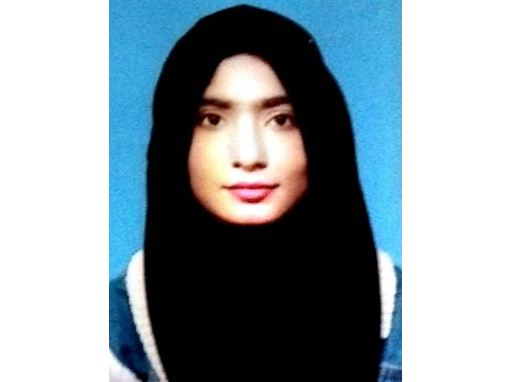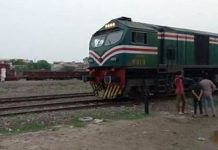Aqsa Rani
Okara, a city located in the Punjab province of Pakistan, has a long history dating back to ancient times. The region has witnessed the rise and fall of various civilizations, leaving behind a rich historical legacy. This history can be traced through different periods, from ancient times to the colonial era and the present-day city of Okara.
The name “Okara” is derived from a local village called “Okaanwala,” which was situated in the same area where Okara is currently located. Over time, the name “Okaanwala” gradually transformed into “Okara,” which eventually became the official name of the city. The exact origins and meaning of the name “Okaanwala” are not entirely clear, but it is believed to have been derived from the combination of two Punjabi words: “Okaan,” referring to a particular tree or plant species, and “wala,” meaning “place” or “belonging to.” Therefore, “Okaanwala” could be interpreted as “the place of Okaan” or “the place associated with the Okaan tree. During ancient times, the area where Okara is situated was part of the ancient Indus Valley Civilization, one of the oldest urban civilizations in the world. Archaeological excavations have revealed remnants of ancient settlements, including pottery, tools, and coins, indicating human habitation in the region. Okara’s location in the Punjab region likely played a role in its connection to this ancient civilization.During the Vedic period, which followed the decline of the Indus Valley Civilization, the region of present-day Punjab, including Okara, was inhabited by various Aryan tribes. The Aryans brought with them the Vedic culture and the Sanskrit language, which had a significant impact on the subsequent development of the region. The Punjab region also witnessed the influence of various ancient empires and dynasties, including the Persian Achaemenid Empire, the Maurya Empire led by Emperor Ashoka, and the Indo-Greek, Kushan, Gupta, and Rajput dynasties. These dynasties contributed to the cultural and political landscape of the region, leaving behind architectural remnants and cultural influences.
During the medieval period, Okara and the broader Punjab region were ruled by various empires and dynasties, including the Hindu Shahi dynasty, the Ghaznavid Empire, the Ghurid Empire, and the Delhi Sultanate. Each of these ruling powers left its mark on the cultural, political, and architectural landscape of Okara. The region witnessed a fusion of Hindu, Buddhist, and Islamic cultural influences and saw the construction of temples, stupas, mosques, forts, and palaces.The colonial era of Okara refers to the period when the region came under British colonial rule in the Indian subcontinent. The British introduced administrative, economic, and social changes that significantly influenced the development of Okara. They established a military cantonment in Okara to maintain law and order and secured the eastern border of British India. The British also brought modern agricultural practices, developed irrigation systems, constructed roads and railways, and introduced administrative institutions and governance systems.After gaining independence from British colonial rule in 1947, Okara became part of the newly created country of Pakistan. The region witnessed significant population migrations and played a role in accommodating and providing support to the refugees from India. In the post-independence and modern era, Okara experienced socio-economic development, urbanization, and infrastructural advancements. Agriculture remained a crucial sector, with the region known for its fertile lands and the cultivation of crops such as wheat, cotton, sugarcane, and rice. Educational, healthcare, and administrative systems were established, and the city saw the development of residential and commercial areas.
Okara stands tall as a symbol of progress and development. With its rich agricultural heritage, flourishing industries, and commitment to education and healthcare, Okara continues to make its mark on the map of Pakistan. Today, we delve into the key aspects that define the present-day Okara.The fertile lands of Okara have long been the backbone of its economy. A haven for crops such as wheat, cotton, sugarcane, and rice, the region’s farmers employ modern techniques to maximize productivity. Agriculture remains a significant source of employment for the local population, ensuring food security and contributing to the national economy. In recent years, Okara has witnessed the steady growth of its industrial sector. Small and medium-sized industries have flourished, particularly in textile manufacturing, food processing, and leather goods production. These industries generate employment opportunities and foster economic growth, making Okara a hub of industrial activity in the region. Education takes center stage in Okara, with a robust infrastructure of schools, colleges, and training institutes providing quality education to its residents. The esteemed University of Okara offers a diverse range of undergraduate and postgraduate programs, equipping students with the knowledge and skills for a competitive world.Okara’s healthcare facilities have undergone significant improvements over the years. With numerous hospitals, clinics, and medical centers, the city caters to the health needs of its inhabitants. The government’s dedicated efforts to enhance healthcare access and improve service quality have further strengthened the healthcare sector in Okara.To support its growing population, Okara has embarked on infrastructural development. Improved roads, bridges, and public transportation systems have enhanced connectivity within the city and with neighboring urban centers. Modern housing societies and commercial complexes have emerged, providing a contemporary lifestyle to its residents.
Okara takes great pride in its cultural heritage, which is preserved and celebrated with fervor. Vibrant cultural events, festivals, and exhibitions showcase the region’s arts, crafts, and traditional performances. Historical sites and landmarks invite visitors to explore Okara’s rich history and connect with its roots.Okara offers an array of social and recreational facilities to cater to the needs of its residents. Shopping malls, restaurants, parks, and sports complexes provide avenues for leisure and entertainment, contributing to an enhanced quality of life for the local population.Okara’s local administration, operating under the jurisdiction of the Okara District, plays a pivotal role in ensuring essential services, infrastructure development, and maintaining law and order. Through their dedicated efforts, the government and local bodies aim to create a conducive environment for growth and prosperity.
Contemporary Okara reflects the progress achieved across various aspects of life. With a focus on infrastructure, economy, education, healthcare, culture, and social welfare, Okara aims to create a prosperous and inclusive environment for its residents. The city embraces modernity while cherishing its cultural heritage, fostering community participation and sustainable development.At the end, I thank to Respected Sir Dr. Muhammad Akram Zaheer who has shown in my growth as a writer. His belief in my abilities and their dedication to helping me succeed has been an invaluable source of motivation. His mentorship has empowered me to explore new perspectives, challenge my own assumptions, and develop a stronger and more confident voice
BS Medical Lab Technology University of Okara

















